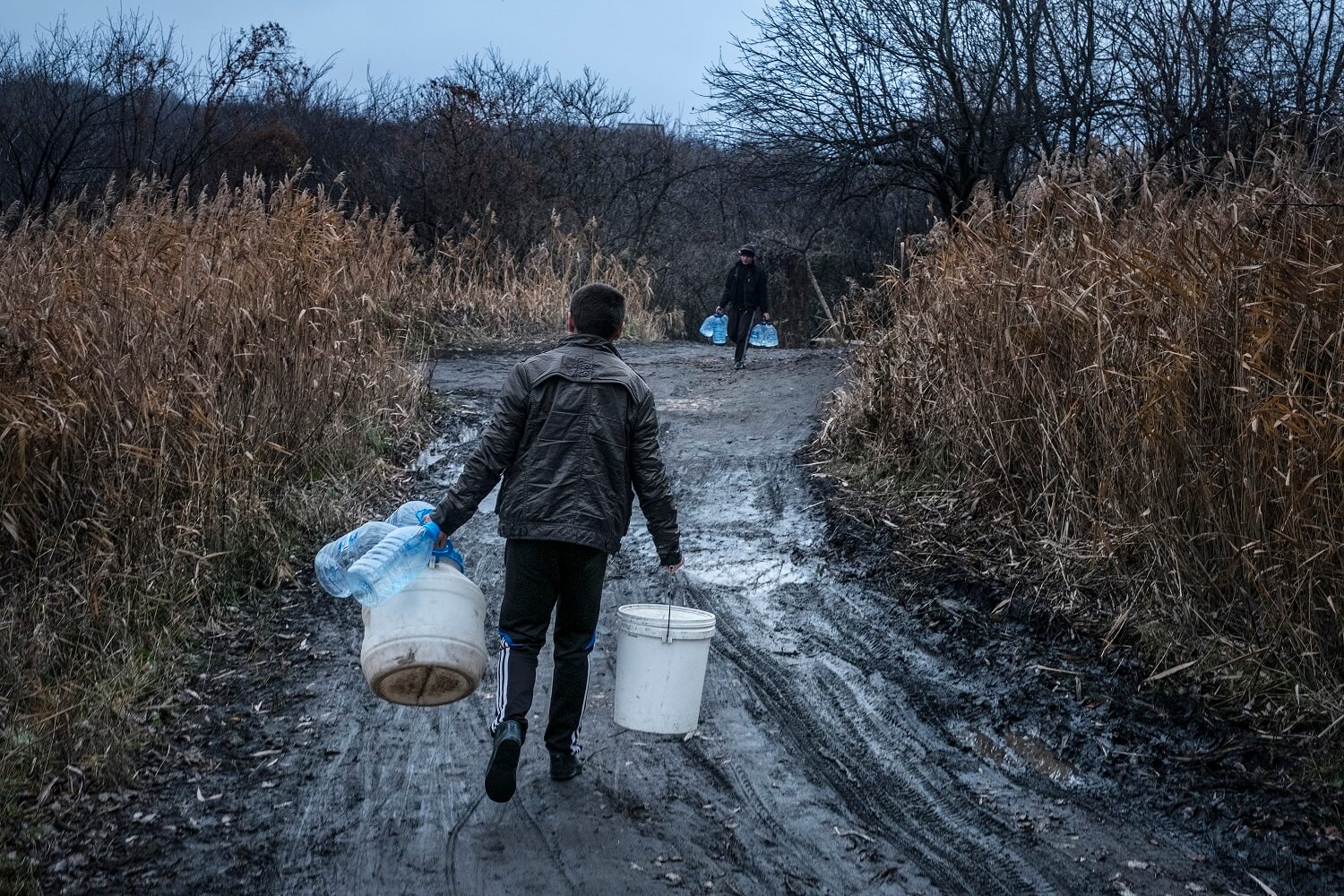4 July 2019 – An escalation in fighting is threatening access to safe water and sanitation for 3.2 million people, including 500,000 children, as well as the safety of workers risking their lives to repair damaged infrastructure in Eastern Ukraine, said UNICEF today.
During the last week of June, there were five separate, conflict-related incidents affecting water and sanitation facilities on Eastern Ukraine’s contact line, which divides Government and Non-Government Controlled Areas.
In the early morning of 29th June, shrapnel from exploding shells damaged water pipelines near Horlivka, along the Siverski Donets-Donbass channel, which supplies water to more than 3 million people on both sides of the contact line. The same evening, night-shift workers at the First Lift Pumping Station near Vasylivka, Donetsk Region, had to run for their lives to the onsite bomb shelter to avoid shelling.
“UNICEF once again calls for an immediate end to the indiscriminate shelling of vital civilian infrastructure and the protection of water workers. These women and men risk their lives to make sure children and families have access to clean water, a fundamental human right for all,” said UNICEF Ukraine Deputy Representative Laura Bill.
Since the beginning of this year, fighting in the conflict-affected areas has either disrupted or entirely halted the water supply for 3.2 million people for 29 days and has damaged water and sanitation facilities 58 times. Nine water workers have been killed and 26 injured since the conflict began, including three this year – all of these workers died while trying to keep water flowing for children and families living in the conflict-affected areas.
“When access is cut or reduced, children and their families often have no choice but to rely on contaminated water and unsafe sanitation – this is particularly dangerous during the stifling summer temperatures we have seen recently,” said Bill. “This past April, there was an outbreak of gastroenteritis within days of a water stoppage – unless we see an end to the hostilities more children will continue to suffer.”
During the first five months of 2019, UNICEF and partners helped nearly 930,000 people access clean water on both sides of the contact line through water delivery, providing water treatment chemicals and by completing critical repairs and upgrades to what is an already fragile system.
So far this year, UNICEF’s $13.3 million USD appeal to provide emergency water and sanitation support in eastern Ukraine is 15 per cent funded. UNICEF’s total $21 million USD appeal to respond to the humanitarian needs of children and their families in Eastern Ukraine is only 30 per cent funded.
###
Notes for editors:
Access broadcast quality photos and video of the emergency water and sanitation response in eastern Ukraine here: https://weshare.unicef.org/Folder/2AMZIFINXQHA
For more information, please contact:
Unicef UK Media Team, 0207 375 6030, [email protected]
About Unicef
Unicef is the world’s leading organisation for children, promoting the rights and wellbeing of every child, in everything we do. Together with our partners, we work in 190 countries and territories to translate that commitment into practical action, focusing special effort on reaching the most vulnerable and excluded children, to the benefit of all children, everywhere.
Unicef UK raises funds to protect children in danger, transform their lives and build a safer world for tomorrow’s children. As a registered charity we raise funds through donations from individuals, organisations and companies and we lobby and campaign to keep children safe. Unicef UK also runs programmes in schools, hospitals and with local authorities in the UK.
For more information please visit unicef.org.uk


